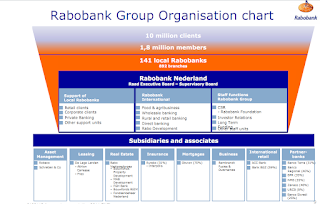Wilhelm Tell doorverteld
Dat idee van een vertelling een nieuwe vorm te geven is in dit geval de "komische" schrijver P.G. Wodehouse. Wilhelm Tell Told Again, is daarbij de gekozen titel. Het is een combinatie van prosa en poesie die in de epiloog als een samenvatting toegevoegd is, en die ik hieronder overneem. Het verhaal eindigt met "belastingen"*
Some say the tale related here Is amplified and twisted;
Some say it isn't very clear That William Tell existed;
Some say he freed his country so,
The Governor demolished.
Perhaps he did. I only know That taxes aren't abolished!
Prologue
The Swiss, against their Austrian foes,
Had ne'er a soul to lead 'em,
Till Tell, as you've heard tell, arose
And guided them to freedom.
Tell's tale we tell again--an act
For which pray no one scold us--
This tale of Tell we tell, in fact,
As this Tell tale was told us.
Plate I
Beneath a tyrant foreign yoke,How love of freedom waxes!
(Especially when foreign folk Come round collecting taxes.)
The Swiss, held down by Gessler's fist,
Would fain have used evasion;
Yet none there seemed who could resist
His methods of persuasion.
Plate II
And pride so filled this Gessler's soul
(A monarch's pride outclassing),
He stuck his hat up on a pole,
That all might bow in passing.
Then rose the patriot, William Tell--
"We've groaned 'neath Austria's sway first;
Must we be ruled by poles as well?
I've just a word to say first!"
Plate III
The crowd about the pole at morn
Used various "persuaders"--
They flung old cans (to prove their scorn
Of all tin-pot invaders);
And cabbage-stumps were freely dealt,
And apples (inexpensive),
And rotten eggs (to show they felt
A foreign yoke offensive).
Plate IV
Said William Tell, "And has this cuss
For conquest such a passion
He needs must set his cap at us
In this exalted fashion?"
And then the people gave a cry,
'Twixt joy and apprehension,
To see him pass the symbol by
With studied inattention!
Plate V
At first the sentinel, aghast,
Glared like an angry dumb thing;
Then "Hi!" he shouted, "not so fast,
You're overlooking something!"
The sturdy Tell made no response;
Then through the hills resounded
A mighty thwack upon his sconce--
The people were astounded.
Plate VI
Could Tell an insult such as this
Ignore or pass? I doubt it!
No, no; that patriotic Swiss
Was very cross about it.
The people, interested now,
Exclaimed, "Here! Stop a minute
If there's to be a jolly row, By Jingo! we'll be in it!"
Plate VII
Said Tell, "This satrap of the Duke
Is sore in need of gumption;
With my good bow I will rebuke
Such arrow-gant presumption."
"Stand back!" the soldier says, says he;
"This roughness is unseemly!"
The people cried, "We will be
FREE!"
And so they were--
extremely!
Plate VIII
They dealt that soldier thump on thump
(He hadn't any notion, when on Tell's head he raised that bump,
Of raising this commotion);
Tell's arrow sped, the people crowed,
And loudly cheered his action;
While Tell's expressive features showed A certain satisfaction.
Plate IX
Now, when the cat's away, the mice
Are very enterprising,
But cats return, and, in a trice--
Well, Gessler nipped that rising.
And when those soldiers
lodged complaint
(Which truly didn't lack
ground),
The people practised self-restraint
And fell into the background.
Plate X
And Tell, before the tyrant hailed,
No patriot you'd have
guessed him,
For even his stout bosom
quailed
When Gessler thus addressed
him:--
"As you're the crack shot of
these Swiss
(I've often heard it said
so),
Suppose you take a shot at
this,
Placed on your youngster's
head--so!"
Plate XI
"The bearing," as they say, "of that
Lay in the apple-cation,"
And nobody will wonder at
A parent's agitation;
That anguish filled Tell's
bosom proud
Needs scarcely to be stated,
And, it will be observed, the crowd
Was also agitated.
Plate XII
Said Gessler, "This is all my eye!
Come, hurry up and buck up!
Remember, if you miss, you die--
That ought to keep your pluck up.
The flying arrow may, no doubt,
Your offspring's bosom enter--"
But here there rose a mighty
shout:
"By George! He's scored a centre!"
Plate XIII
But, as the arrow cleft the core,
Cried G. with indignation,
"What was the second arrow for?
Come, no e-quiver-cation!
You had a second in your fist."
Said Tell, the missile grippin',
"This shaft (had I that apple missed)
Was meant for you, my pippin!"
Plate XIV
With rage the tyrant said, said he,
"It's time to stop this prating;
I find your style of repartee
Extremely irritating.
You'll hang for this, be
pleased to note."
On this they bound and gagged him
(For Gessler's castle booked by boat),
And through the village dragged him.
Plate XV
But slips between the cup and lip,
When least expected, peer through--
A storm arose upon the trip
Which Tell alone could steer through.
Thus, of all hands he quickly
got (As you may see) the upper,
At Gessler took a parting
shot, And hurried home to supper.
Epilogue
Some say the tale related
here Is amplified and twisted;
Some say it isn't very clear
That William Tell existed;
Some say he freed his country
so, The Governor demolished.
Perhaps he did. I only know
That taxes aren't abolished!




Reacties